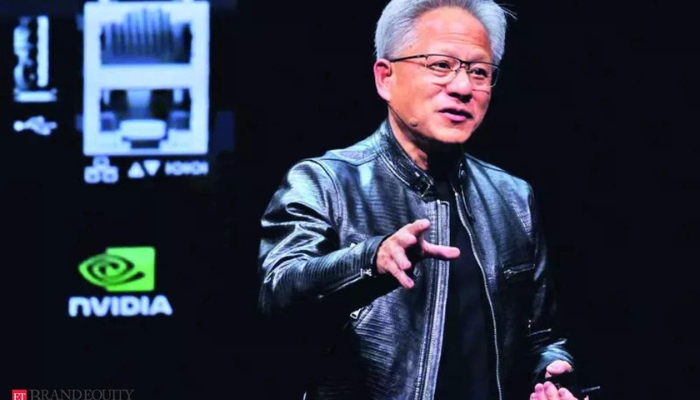
CEO Jensen Huang declares at a packed Taipei stadium, “The next Industrial Revolution has begun
Nvidia has revealed new products and outlined its strategy to drive artificial intelligence forward. The company’s CEO, speaking to a full stadium in Taipei, declared, “The next Industrial Revolution has begun.”
Jensen Huang is in Taiwan for Computex, the island’s premier tech expo, joining the CEOs of major semiconductor companies like AMD, Intel, and Qualcomm. Their discussions focus on shaping a tech industry dominated by AI.
Huang, born in Taiwan, enjoys celebrity status there. His visit generated immense media and public interest, largely due to Nvidia’s position as the unrivaled leader in specialized chips and hardware crucial for advanced AI development and operation.
Nvidia is teaming up with companies and countries to transition traditional trillion-dollar data centers to accelerated computing. They aim to create a new kind of data center, dubbed “AI factories,” to manufacture artificial intelligence. Huang made this announcement at the National Taiwan University’s sports center.
He also introduced Nvidia ACE generative AI, now widely available, which can produce realistic human avatars. This technology is particularly useful for industries like customer support.
He also detailed how major tech firms like Foxconn from Taiwan, the world’s largest contract electronics manufacturer, and the German industrial giant Siemens are leveraging Nvidia’s platforms for AI-driven autonomous robots.
Although Nvidia had recently launched its Blackwell platform, Huang revealed plans for an “ultra” version scheduled for 2025. He also hinted at a forthcoming next-generation graphics processing unit (GPU) architecture called Rubin.
“We operate on a one-year cycle,” he stated, indicating an accelerated schedule for releasing new GPU products annually.
Huang envisioned a future in his nearly two-hour speech where “virtually every interaction you have with the internet or a computer will likely involve a cloud-based generative AI.”
His keynote also highlighted Taiwan, whose advanced semiconductor industry is vital for manufacturing products like iPhones and the servers powering ChatGPT.
He praised Taiwan as “the home of our esteemed partners,” emphasizing that Nvidia’s endeavors start there before expanding globally. This partnership, he noted, has established the world’s AI infrastructure.
The day prior to his speech, Huang threw the ceremonial first pitch at a baseball game in Taipei. Additionally, on Thursday, he had dinner with key figures from Taiwan’s tech industry, including the Foxconn chief.
Lisa Su from AMD and Cristiano Amon from Qualcomm are slated to give keynote addresses at Computex.
Su is expected to detail AMD’s strategy for competing in advanced AI, while Amon will demonstrate the AI-driven experiences that users can anticipate from future PCs, as stated by the organizers.
Intel’s CEO, Pat Gelsinger, and Arm’s head, Rene Haas, will also address the event.
Tech companies are heavily investing in AI, with Taiwanese manufacturers playing a pivotal role in their strategies. The island is the primary producer of the world’s most advanced semiconductors, crucial for powerful AI applications and research.
Suppliers like Foxconn, traditionally known for contract electronics manufacturing for companies like Apple, have also shifted towards producing AI hardware.
Foxconn’s CEO, Young Liu, informed shareholders on Friday that the company’s global market share for AI servers would rise to 40% this year.
Yet, Taiwan’s crucial role in the semiconductor supply chain, which is vital to the modern economy, has raised concerns in capitals and boardrooms globally.
While Taiwan governs itself, China asserts its claim over the island and has not dismissed the possibility of using force to assert control.
In recent times, relations between Beijing and Taipei have worsened, with the Chinese military conducting numerous large-scale exercises near the island, including simulating a blockade.



